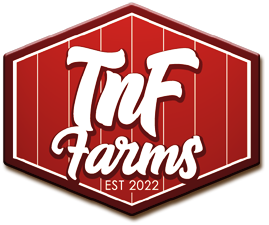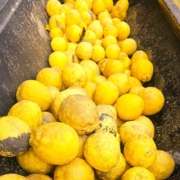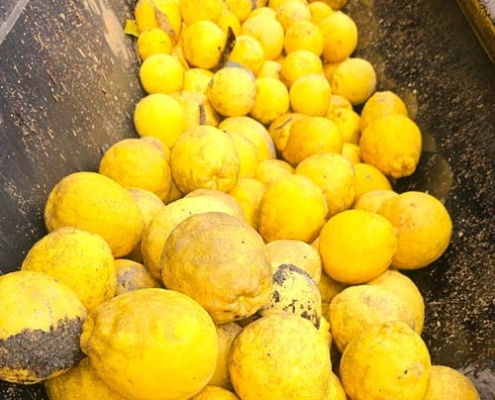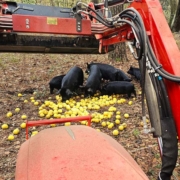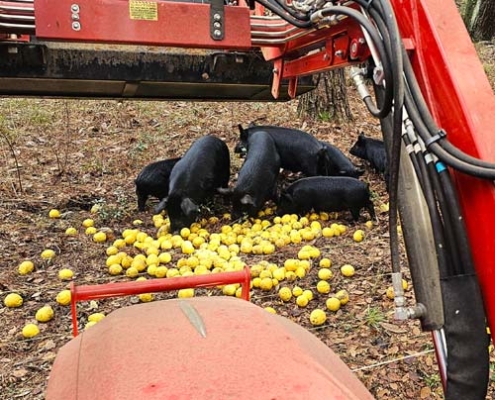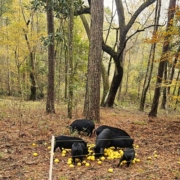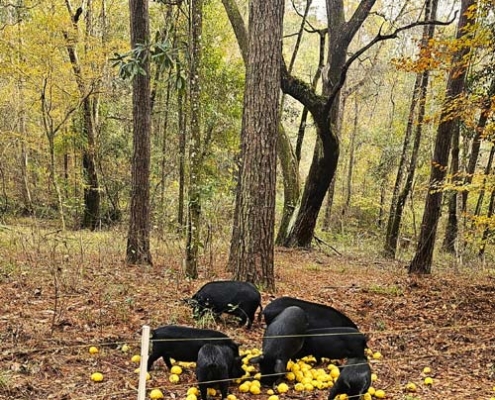Growing lemons in Florida
When we first moved to Florida, we settled into a little stucco house with a postage stamp-sized lot in Jacksonville. It was a great little starter home to kick off our Florida adventure. The thing that really made us decide that this was the house was the adorable orange tree in the backyard. When late fall rolled around, we started to pick our oranges and enjoyed eating them. I juiced a lot of them and surprisingly, this small tree yielded a ton of oranges. Tim and I both took bags upon bags of oranges to our workplaces. The following years, our coworkers looked forward to the orange harvest and we even had friends stopping in to pick right off our tree.
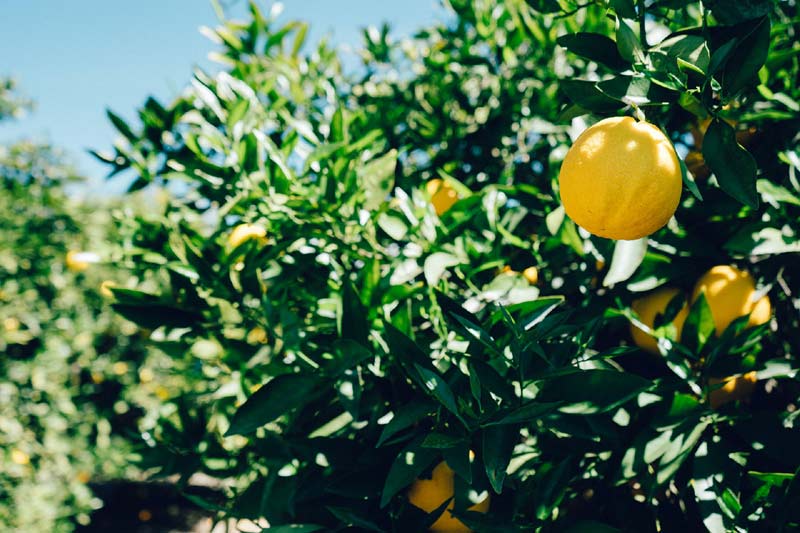
Photo via Pexels
When we bought the property that is now TnF Farms, we saw that there were some mature fruit trees on the property. We thought they may have been pears. No, they were lemons. The first late fall harvest, we were pretty excited. The lemons were big and bright yellow. We cut into one and it was full of seeds. We tried a couple of others and they were very seedy. Then we tasted one and discovered it wasn’t pleasantly tart, but punishingly bitter. No amount of sugar added to this fruit would make lemonade, lemon curd, or lemon bars.
Kinds of lemon trees that grow in Florida
In North Florida, where the climate is generally mild, you can grow several types of lemon trees successfully. Citrus trees, including lemons, thrive in well-drained soil and warm temperatures. Some lemon tree varieties that are suitable for North Florida include:
Eureka Lemon This is a common lemon variety with bright yellow, juicy fruit. It is a popular choice for home gardens due to its consistent fruit production.
Lisbon Lemon Similar to the Eureka lemon, the Lisbon lemon is another common variety. It produces abundant fruit and is well-suited to the North Florida climate.
Meyer Lemon While technically a lemon, the Meyer lemon has a sweeter flavor and thinner skin compared to traditional lemons. It is a popular choice for home gardens and is well-suited to the warmer climate of North Florida.
Ponderosa Lemon This lemon variety is known for its large fruit size. It’s a hybrid between a lemon and a citron and can be grown in North Florida, especially if provided with proper care.
We’re not 100% sure, but we think we have Ponderosa Lemons growing on our property.
So many lemons at TnF Farms
We weren’t sure what to do with all of these lemons. They couldn’t be left on the ground, it would attract all kinds of bugs. We had no livestock because TnF Farms wasn’t even a thought yet. Fortunately, one of our neighbors with a farm said she’d take them. I thought to myself, why would any animal want something so sour? The neighbor brought us some feed sacks and we filled the bags. We followed her down and watched her dump the bags out for her pigs. Some ate and loved them, others took a bite, and went, NOPE! We saw the same experience with her cows. If you walked up to her fence, you could just pop lemons into their mouths. Some wanted as many as we could give them. Others made mortified faces reacting to the bitterness.
Once TnF Farms was started, we had pigs roaming our pastures and they ate the following year’s harvest while our goats nibbled the leaves from the lemon trees. We found if we cut the lemons in half, the goats would nibble on them too. I suspect it’s the seeds their after and they’re working their way through the bitterness.
When life gives you lemons, feed them to your pigs.
It’s that time of year again. We have lemons on the ground in a pasture our American Guinea hogs, Nigerian Dwarf goats and Nubian goats aren’t currently grazing. Today Tim drove the tractor down, shook all of the big trees, and began filling our tractor’s bucket. This round, the bucket was about half full. He then went and dumped the lemons over the fence that the pigs were currently grazing. Some tasted and went NOPE. The rest dove in and loved them. There are a bunch of lemons still left in the trees, so we will do this a few more times before the season ends.
